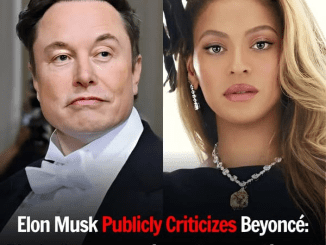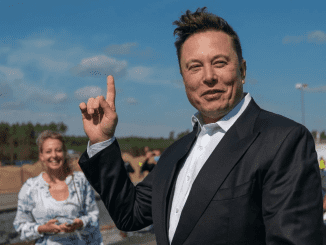
In a sudden turn of events, tech billionaire Elon Musk has made headlines once again, this time not for his revolutionary advancements in technology or his ventures into outer space, but for claiming to be a victim of a conspiracy orchestrated by the media. The outspoken CEO of Tesla and SpaceX has taken to Twitter to accuse the media of spreading misinformation and damaging his company’s reputation, ultimately leading to serious consequences for Tesla. Musk’s accusations have sent shockwaves through the tech and business world, with many questioning the truth behind his claims. While Musk has always been known for his fiery personality and controversial statements, his latest allegations have raised eyebrows and garnered widespread attention. According to Musk, the media has been intentionally spreading negative stories and false information about Tesla, painting an inaccurate picture of the company’s financial health and performance. He has gone as far as to suggest that there is a coordinated effort to undermine Tesla’s success and drive down its stock prices. But is there any truth to Musk’s claims, or are they simply a smokescreen to distract from other pressing issues facing the company? Skeptics argue that Musk’s tendency to deflect blame and shift the narrative is nothing new, and that his latest conspiracy theory is just another attempt to divert attention away from Tesla’s mounting challenges. Indeed, Tesla has faced its fair share of controversies in recent years, from production delays and quality control issues to regulatory scrutiny and lawsuits. The company’s stock has been on a rollercoaster ride, with investors and analysts closely monitoring its performance and stability. Musk’s penchant for stirring up drama and making bold statements on social media has only added to the volatility surrounding Tesla. While his supporters praise him for his vision and entrepreneurial spirit, critics have raised concerns about his erratic behavior and its potential impact on the company’s future. In the midst of these swirling controversies and uncertainties, Musk’s latest conspiracy theory has sparked a new wave of debate and speculation. Some industry observers argue that there may be some truth to his allegations, pointing to the power of the media to shape public perception and influence financial markets. Others, however, view Musk’s claims as a classic example of deflection and manipulation, designed to shift blame and avoid accountability. They argue that the real issue lies not with the media, but with Tesla’s own internal challenges and operational shortcomings. As the dust settles on this latest controversy, one thing is clear: Elon Musk is a polarizing figure whose actions and statements have far-reaching consequences. Whether he is truly a victim of a media conspiracy or simply a master of self-promotion, the spotlight remains firmly on him and his companies. In the fast-paced world of technology and innovation, it is more important than ever for leaders like Musk to navigate the complexities of media scrutiny and public perception with transparency and integrity. Only time will tell whether Elon Musk’s latest claim is a genuine revelation or just another chapter in the ongoing saga of his tumultuous career.


